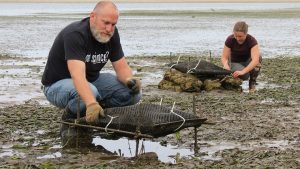
Researchers Explore Using Empty Oyster Shells to Decrease Acidic Seawater
Oregon Sea Grant supported researchers place bags of oysters on different amounts of empty shells to see if the shells help the oysters grow better in acidified waters.
Scroll down to view posts

Oregon Sea Grant supported researchers place bags of oysters on different amounts of empty shells to see if the shells help the oysters grow better in acidified waters.
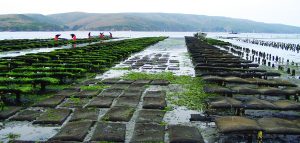
A survey funded by Oregon Sea Grant found that more than 80 percent of respondents from the west coast shellfish industry agree that ocean acidification is having negative consequences on production.
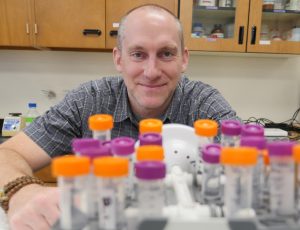
During National Seafood Month, Sea Grant highlights a few of the many ways it works to support sustainable seafood and aquaculture.
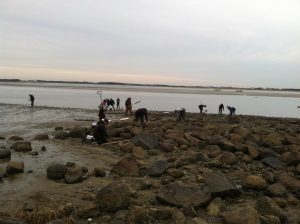
To help protect and increase the cultural and financial benefits of shellfish aquaculture, Woods Hole Sea Grant partnered with state and local agencies to produce a series of educational brochures about health and safety aspects of handling and consuming shellfish harvested in state waters.
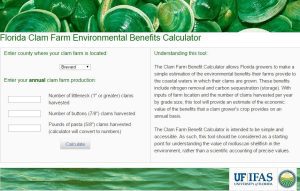
The Clam Farm Benefit Calculator allows Florida clam growers to make a simple estimation of the environmental benefits their farms provide annually to coastal waters.
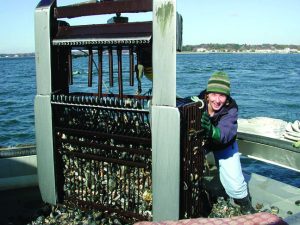
Connecticut Sea Grant assists aquaculture industry, bringing policy makers and stakeholders together, netting new benefits for ocean crop loss.
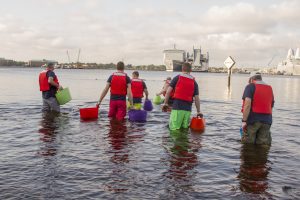
The permitting processes for oyster restoration projects can be challenging to navigate, as a maze of state and federal programs may apply. A new legal research report, released by the National Sea Grant Law Center and the Mississippi-Alabama Sea Grant Legal Program, hopes to make these processes a little more easy to navigate by providing an overview of the permitting programs in 21 states.
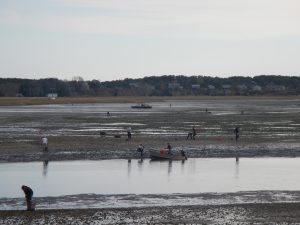
Woods Hole Sea Grant is evaluating how the growing and harvesting of shellfish can reduce nitrogen loading and improve water quality in Cape Cod coastal bays.
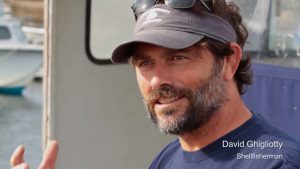
Two years in the making, Rhode Island’s first comprehensive shellfish management plan was celebrated recently at the University of Rhode Island by the state agencies, project managers, researchers, stakeholders, and funders who made it happen.
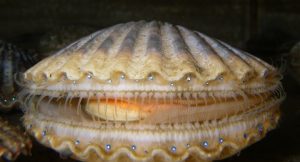
Average world ocean pH has dropped from 8.2 to 8.1 over recent decades and is expected to drop to 7.8 by the end of the century. Dr. Meredith White, with funding in part, from Woods Hole Sea Grant, examines how this shift may effect the commercially valuable bay scallop, Argopecten irradians
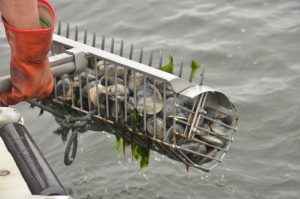
As part of the Rhode Island Shellfish Management Plan Rhode Island Sea Grant is funding research to assess how traditional means of estimating clam population affect fishing limits.